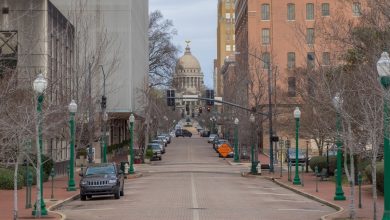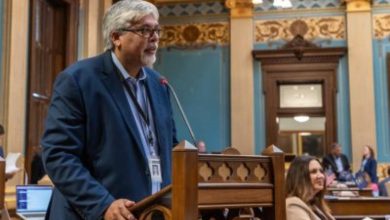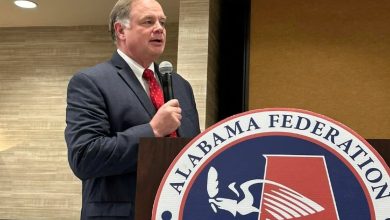Maine Tribal On-line On line casino Invoice Suffers Slim Defeat in Home

A invoice that might have legalized on-line gaming in Maine and handed a monopoly to the state’s 4 Wabanaki tribes has run aground within the Home. The laws was narrowly defeated Tuesday by a vote of 74-71, The Portland Press Herald studies.
State Rep. David Boyer, above, mentioned he couldn’t help the invoice in its present kind however can be open to on-line on line casino laws that included Maine’s business on line casino business. (Picture: Bangor Each day Information)
State Rep. Laura Supica’s (D-Bangor) invoice would have allowed the tribes to align with a third-party operator like DraftKings to run on-line on line casino video games, as they at present do with on-line sports activities betting.
Supica argued this is able to assist redress the imbalance in sovereign rights for Maine tribes in contrast with many different tribes within the US.
Redressing the Stability
Underneath the Maine Indian Claims Settlement Act (MICSA) of 1980, the tribes have been afforded a narrower model of sovereignty that didn’t embrace the precise to prepare gaming on their lands. At present, their reservations are handled like municipalities, which suggests they continue to be topic to state legal guidelines.
Maine’s sports activities betting invoice, which handed in 2022, was the primary try to redress the tribes’ lack of gaming rights. However some lawmakers mentioned Tuesday they imagine including cellular on line casino gaming into the combination is a bridge too far, particularly when the state’s two business land-based casinos can be frozen out of the market.
There have been issues {that a} tribal on-line gaming monopoly would cannibalize the land-based on line casino market, doubtlessly resulting in job losses.
On line casino Inclusion
State Rep. David Boyer (R-Poland) mentioned he can be keen to think about a invoice that included the casinos and urged making an attempt once more subsequent session.
“As a lot as I need to play on-line poker, this isn’t the best way to do it,” he mentioned, as reported by the Press Herald. “I’m involved with the roles which are at stake in Oxford and Bangor. The tax charges usually are not comparable. The brick-and-mortar casinos have a really excessive tax charge.”
A tribal monopoly would have generated $100 million within the first few years, in accordance with estimates. Supica’s invoice set the tax charge at 16%. That’s a lot decrease than the business casinos, which pay between 40% and 47% on slots.
“A lot of the priority comes from the truth that it’s completely for the tribes,” mentioned Supica. “However for me, that’s the reason I wholeheartedly help it, as a result of it is a great alternative for the state of Maine to start to make some corrections to how they’ve enacted previous gaming legal guidelines.”





